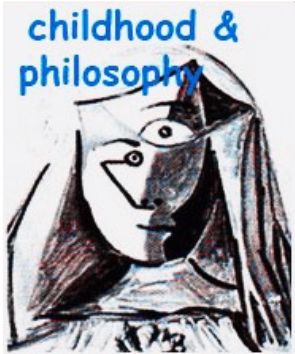The present and future of doing Philosophy with Children: Practical philosophy and addressing children and young people’s status in a complex world.
DOI:
https://doi.org/10.12957/childphilo.2023.71920Keywords:
agency, children’s status, dialogue, future, Philosophy with ChildrenAbstract
This article considers children’s status in society and how this may be elevated with a view to imagining a possible future. Children’s status is such that the structures and systems under which they live diminish their agency. In so doing, their opportunity to contribute to the shaping of what appears to be an uncertain future is limited. The article proposes that looking towards children as saviours of our tomorrows is misguided and that a healthier view is to recognise the networked nature of children, which recognises children’s humanity and sees them as connected to the world in which and of which they are a part. By accepting the networked nature of children, adults may come to think and behave differently towards children, beginning to see themselves and children as ‘one among many’. This perspective allows for compassion, a notion that supports our living together. This article proposes that Philosophy with Children may offer an approach to engaging in community and dialogue that allows us to think our way to a future that is epistemically inclusive. Ultimately, engaging with children as potential knowers demands that we are more overtly political in the ways in which we engage with Philosophy with Children.
Downloads
References
This article considers children’s status in society and how this may be elevated with a view to imagining a possible future. Children’s status is such that the structures and systems under which they live diminish their agency. In so doing, their opportunity to contribute to the shaping of what appears to be an uncertain future is limited. The article proposes that looking towards children as saviours of our tomorrows is misguided and that a healthier view is to recognise the networked nature of children, which recognises children’s humanity and sees them as connected to the world in which and of which they are a part. By accepting the networked nature of children, adults may come to think and behave differently towards children, beginning to see themselves and children as ‘one among many’. This perspective allows for compassion, a notion that supports our living together. This article proposes that Philosophy with Children may offer an approach to engaging in community and dialogue that allows us to think our way to a future that is epistemically inclusive. Ultimately, engaging with children as potential knowers demands that we are more overtly political in the ways in which we engage with Philosophy with Children.



